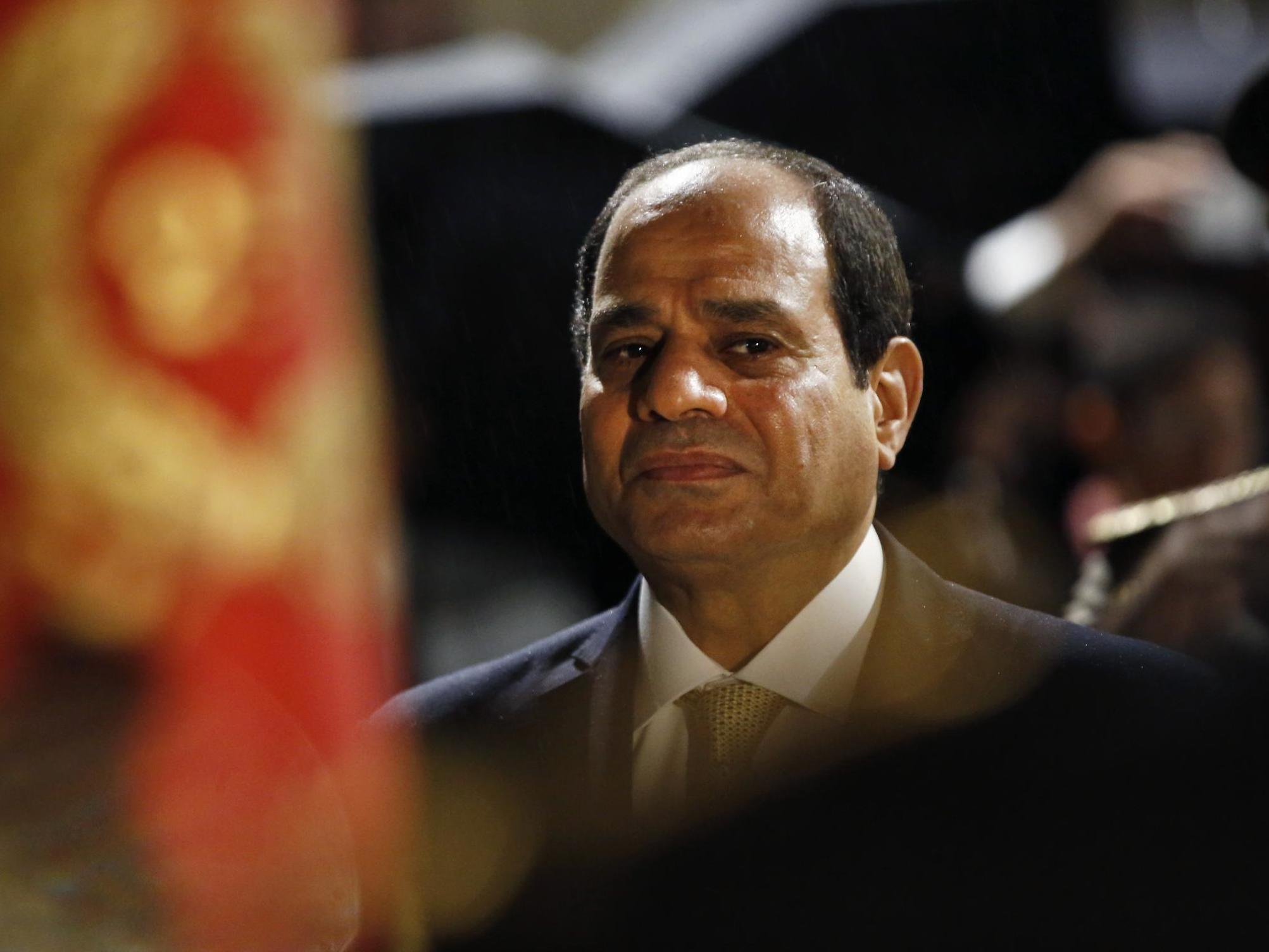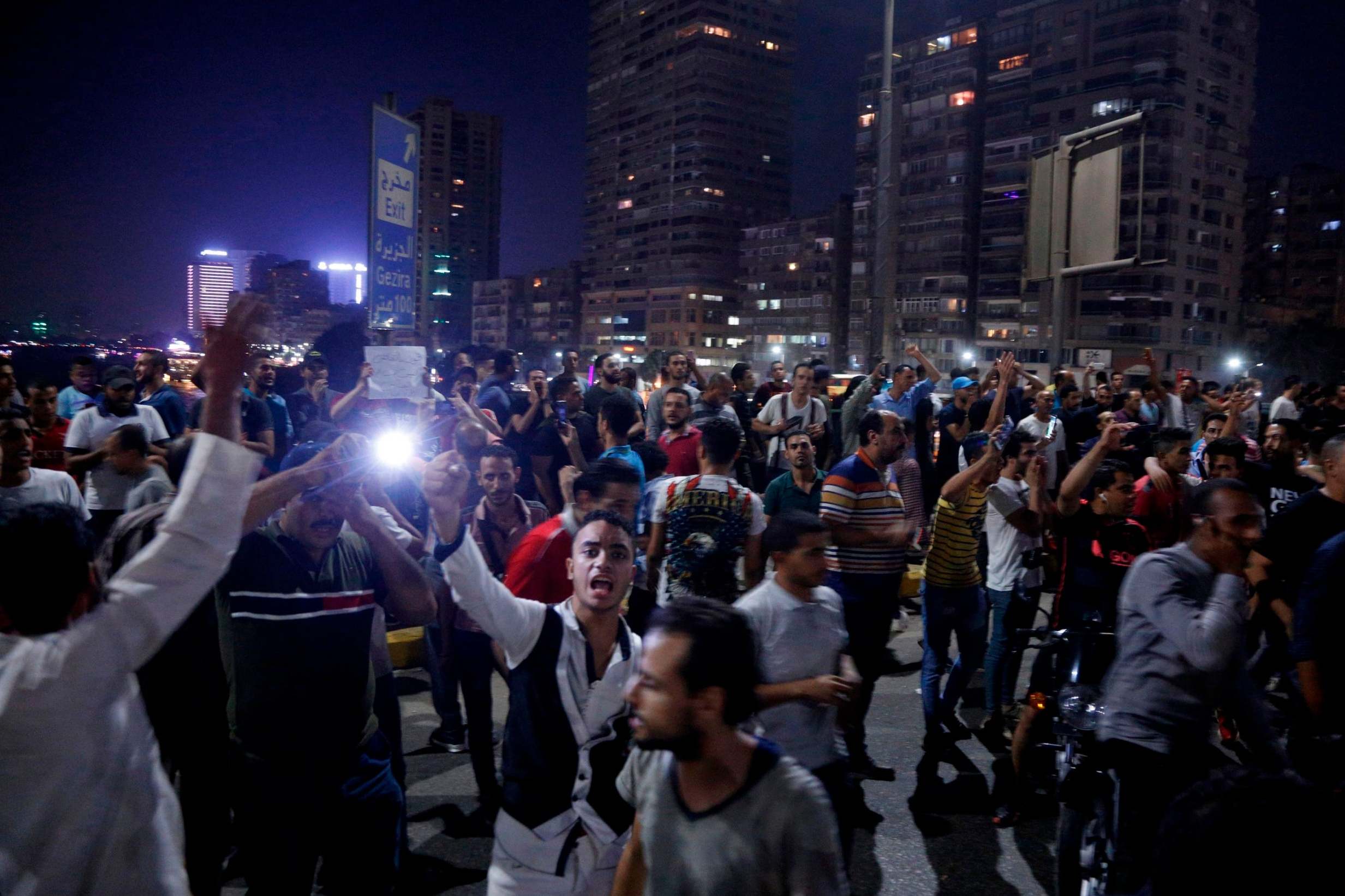Is Egypt’s government really ready to change amid rare protests asking Sisi to go?
Continuing his series on the complexities of the Middle East, Ahmed Aboudouh looks at the possible change in policy by Egypt’s president


Egypt’s government and its president, Abdel Fattah el-Sisi, seem to have been rattled by the protests that began a couple of weeks ago, a rare event in the country given Sisi’s crackdown on dissent. Officials and prominent figures close to the government are promising political, social and media reform; an unprecedented gesture since Sisi took office in 2014.
First came the arrests, one of the largest waves of detentions in the country in recent years, with thousands taken in. Then Ali Abdel Aal, the speaker in parliament, offered a U-turn this week, suggesting more freedoms for dissidents and critics. Meanwhile Sisi promised to restore food subsidies for nearly 2 million Egyptians who have been weeded out of the staples, including rice, pasta, cooking oil and other essentials.
The protesters, who took to the streets by the hundreds in a number of Egypt’s main cities, chanted “Sisi, leave!” for the first time since he toppled the former president Mohamed Morsi of the Muslim Brotherhood in 2013.
Many analysts doubt the credibility of reform promises, sighting the spur-of-the-moment attempt by the government to cool down tension. The protests showed to the world that stability under Sisi can be questionable and should not be taken for granted, they added.
What does the government really fear?
It fears instability. Throughout the past five years, Sisi has repeatedly expressed his anxiety towards any potential reiteration of the 2011 uprising that ended Hosni Mubarak’s 30-year rule. Another mass uprising would weaken his grip on power, and slash economic gains. It could also set the scene for a comeback by the Muslim Brotherhood, according to his supporters.
Sisi has overseen a crackdown on dissent that has extended to liberal as well as Islamist groups, which rights groups say is the most severe in recent memory. Muslim Brotherhood leaders have been imprisoned or have fled abroad.
The latest protests have left Egypt’s dollar bonds falling, with the main stock index wiping out its 2019 gains in just three days.
Several hundred of those detained in the past two weeks – who include prominent writers, activists and opposition figures who had no direct link to the current protests – have been placed under investigation for charges including using social media to spread false news, joining a banned terrorist group and protesting without a permit, defence lawyers say.
Is this only about stability?
No, it’s not. The protests were prompted by calls from an Egyptian businessman living in exile who has accused Sisi and the military of corruption in videos posted on social media. Sisi has called the allegations “lies and slander” but analysts have said that his army commanders seem extremely concerned because the corruption allegations, for the first time, throw cold water on the military’s historically heroic image in the consciousness of ordinary Egyptians.
A prominent lawyer and activist in Cairo, who spoke on condition of anonymity, told The Independent: “Generals don’t want to be pushed to the frontline in any confrontation with the people. This is a red line for them.”

Until now, it is not clear why security forces seemed ready to tolerate the protests when they first erupted. Politicians close to the government say security forces have been taken by surprise but have rebuffed any claims of internal disagreement between factions in the government that may have slowed a response.
During a summit with President Donald Trump at the UN General Assembly, Sisi blamed “political Islam” for the protests.
Why the U-turn now?
The government has seemingly begun to grasp how deeply affected the working and middle classes are by the severe austerity measures the country has adopted over the past three years in exchange for a $12bn loan from the International Monetary Fund.
Officials at the highest level began to realise that keeping strict control over the media left authorities unsure how to face the series of videos on social media by Mohammed Ali, a former contractor and actor.
“The fact that the government is compelled to try to appease public opinion means that it’s traditional, obstinate, arrogant, no response towards public criticism began to crack,” says Said Sadek, professor of political sociology, who is based in Cairo.
Are the government promises enough?
It is too early to tell, and it all depends on how the public takes the news. But early signs suggest that what has been announced so far is far too little and doesn’t come near the people’s real expectations.
“Though this looks like a positive gesture, it is not sufficient, because what’s being offered does not meet the minimum of all the economic and political grievances,” Sadek says. He added that “criticism of government corruption, inefficiency and lack of accountability on various policies remain outside the package of these tiny donations the government is offering.”
What should we expect now?
The calls for further protests seem to be fading, but the government is on high alert, and Sisi’s cabinet may pay the price.
Local newspapers expect a sweeping cabinet reshuffle in the coming days.
In a period where Arab youth appear ready more than ever to try and topple the stagnant political elite, they will expect real change.
“What is really needed is more transparency in making government budget spending; a clear, effective, accountable counterterrorism strategy in North Sinai and more political tolerance of civilian political opposition,” Sadek says.
Join our commenting forum
Join thought-provoking conversations, follow other Independent readers and see their replies
Comments